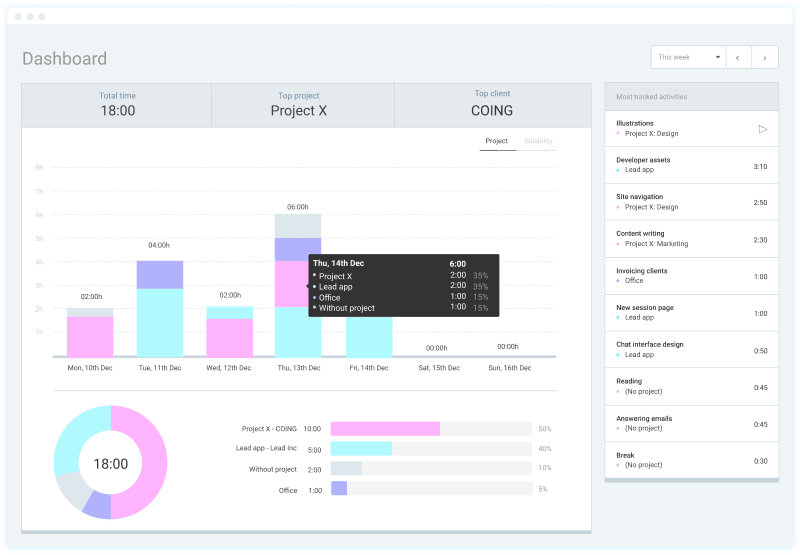There’s a certain work schedule that society has agreed to follow, based on the circadian rhythm of our bodies. Yet, many professions require regular work during night shift hours, e.g. doctors, nurses, receptionists, and others.
The thing is — continuously working a night shift means sleeping against the clock, which comes with various potential issues and risks.
Being aware of all that is the first step in staying healthy, so read on and learn more about:
- The risks of working night shifts,
- Health tips for a night shift schedule,
- Productivity tips for a night shift schedule, and
- FAQs about working night shifts.
Let’s dive right in.
What are the risks of working night shifts?
Working a night shift may result in:
- Circadian misalignment,
- Vitamin D deficiency,
- Higher risk of various diseases,
- Sleep deprivation, and
- Mental fatigue and drainage.
Now let’s see why.
Risk #1: Circadian misalignment
Our internal biological clock is more or less in sync with the circadian rhythm. Thus, the most common reaction to working against the clock is the development of sleep disorders.
Let’s see another of the physical and physiological consequences.
Risk #2: Vitamin D deficiency
Being exposed to sunlight makes our lives better, thanks to the sunshine vitamin — vitamin D.
Apart from being a hormone our bodies produce, vitamin D is also a necessary nutrition source found in certain foods, such as:
- Salmon,
- Tuna,
- Mushrooms,
- Egg yolks,
- Orange juice, etc.
Other than playing a role in our heart, nerves, and muscles functioning adequately, vitamin D is essential to our well-being as it helps our body absorb calcium. The deficiency of calcium is a straight path to inflammation and even osteoporosis.
Risk #3: Higher risk of various diseases
Working night shifts is a disruption that can harm various biological processes. Namely, based on study results from 2007, shift work can be carcinogenic to humans.
Other negative health effects associated with working night shifts include:
- Cardiovascular disease,
- Metabolic syndrome, and
- Diabetes.
Risk #4: Sleep deprivation
According to UCLA Health, night shift workers get approximately 2 to 4 hours less sleep than recommended. Consistent lack of sleep can lead to serious health issues, such as:
- Heart disease,
- Gastrointestinal difficulties,
- Metabolic problems,
- Obesity, and even
- Certain cancers.
Having to be awake during the night is not natural, and chronic sleep loss is associated with various potential problems, as you can conclude.
Risk #5: Unbalanced lifestyle
Working at night can also disrupt your social life, so you may have to decline invitations to late social gatherings.
Once your mind’s aware it has to go to work soon, calculations take over, and you’re not really able to relax. Additionally, social interactions can start to drain your energy, and you’ll be more easily agitated.
10 Tips for staying healthy and productive on a night shift
If you pay attention to your health and track your habits, you can live a healthy life AND be productive during your shift.
Here are the top 10 tips to help you adjust to working the night shift.
Tip #1: Expose yourself to bright lights during the night shift
Here’s a possible solution to help you minimize the damages of vitamin D deficiency, in the words of Matt Claes, the head coach and founder at Weight Loss Made Practical:

“You can fight light with light. Expose yourself to bright lights, likely artificial ones, when you wake up [during unusual times of day, e.g. in the evening] and throughout the night shift. The closer you get to bedtime again, the more you want to dim the lights.”
Tip #2: Optimize your environment for sleep
Now, according to the National Institute for Occupational Safety and Health, creating a good sleep environment means to:
- Sleep in darkness,
- Reduce noise,
- Keep it cool, and
- Have a dedicated (for sleep only) area.
A time management and productivity coach Alexis Haselberger suggests taking your daytime sleep to another level by using blackout curtains or a sleep mask.
Tip #3: Try melatonin for better sleep
The release of melatonin, a.k.a. the sleep hormone serves as a vital part of your sleep cycle. It is a response of your brain to darkness.
If you’re unable to sleep at night, when your natural melatonin levels are the highest, Alexis has another suggestion for you — just try melatonin as a supplement.
* Note: Before use, please consult with your doctor or another qualified health professional for personalized medical advice.
Tip #4: Eat well and at the right time
A healthy and nutritious diet goes a long way, in terms of your overall health but also specific aspects such as productivity and efficiency.
To reduce the impact of chronic circadian misalignment, Chester Wu, MD and a double board certified in Psychiatry and Sleep Medicine, suggests scheduling your meals before and after the shifts, instead of during the night.
Apparently, daytime eating helps prevent circadian misalignment, as 2021 study results show.
Tip #5: Have a regular exercise routine
There are many benefits of exercise, such as:
- Improved mood, sleep quality, and energy,
- Reduced risk of stress and depression, and
- Reduced risk of various illnesses (by 30%).
Furthermore, the UK Chief Medical Officers’ Physical Activity Guidelines recommend at least 150 minutes of physical activity per week for healthy adults.
Tip #6: Keep your mind engaged during the night shift
A night shift schedule is likely to cause decreased brain activity and further results in impaired cognitive performance, as per the latest research.
So, it’s vital to do everything you can to keep your brain engaged and active during the night shift, based on your personality type and job description.
Tip #7: Vary your tasks during the night shift
Varying our tasks helps us perceive our routine as not being monotonous — thus keeping our brain stimulated. So, this goes hand in hand with the previous segment.
Here are some of the perks of varying tasks and even body positions:
- Higher motivation,
- Higher productivity, and
- Lower resignation rates.
Tip #8: Monitor your water intake
Staying hydrated matters to everyone, but it might be more relevant to people working night shifts.
Our bodies are up to 75% made up of water, which:
- Allows cells to grow, reproduce, and survive,
- Regulates body temperature,
- Helps manufacture hormones and neurotransmitters, and
- Helps deliver oxygen all over the body.
So, it’s easy — stay hydrated!
Tip #9: Don’t feel pressured to attend every social event
As we’ve mentioned, your schedule may require your social circle to adapt to the fact that your work schedule is not like most of the people, which could just mean more breakfast and brunch gatherings.
And, while prioritizing health, you’ll simply have to be okay with skipping some family or friend-organized events.
Tip #10: Use an app for monitoring your behavior
Just because your schedule is disrupted, in a way, doesn’t mean meeting your goals and objectives should suffer too. A simple habit-tracking app can go a long way in terms of your overall well-being and every aspect it includes.
Only if you monitor your habits and behavior can you improve your routine. Once you pinpoint the unproductive habits, develop a strategy to eliminate them, one day at a time.

Here’s how Clockify provides valuable insights — with just a glance at your personal Dashboard, you can easily pinpoint your unproductive habits, for instance.
FAQ about working night shifts
If you’d like to know the answers to the 3 most common questions about night shifts, read on.
Can you live a healthy life on the night shift?
Yes, but you have to take special care of your physical and mental health.
Getting enough sleep, having a balanced and nutritious diet, staying hydrated, and regularly having checkups with your doctor are great starting points.
How many hours of sleep is healthy for the night shift?
According to the National Sleep Foundation, adults should get between 7 and 9 hours of sleep per day. So, regardless of the shift, just try to get enough sleep in a 24-hour period, which might include taking a nap or several.
What time is best for exercise for night shift workers?
Even though this can be a highly individualized aspect of health, some experts recommend exercising 30 to 45 minutes before the night shift starts.
However, it’s clearly not something set in stone, so if you feel like exercising at another time, just do it at that point of your day.
–
💡 Further reading
This is just a summary of an article previously published on the Clockify blog.
To learn more about working night shifts and staying healthy, we recommend reading the full article:

